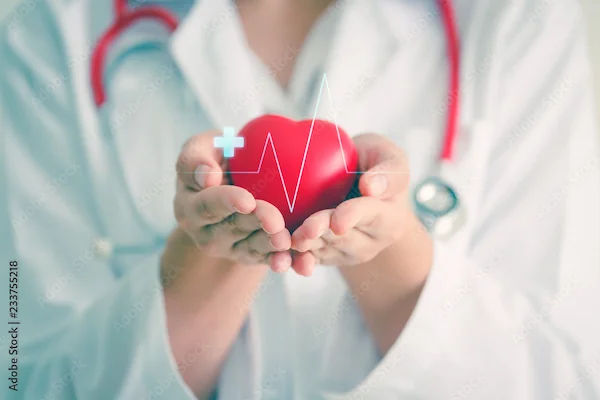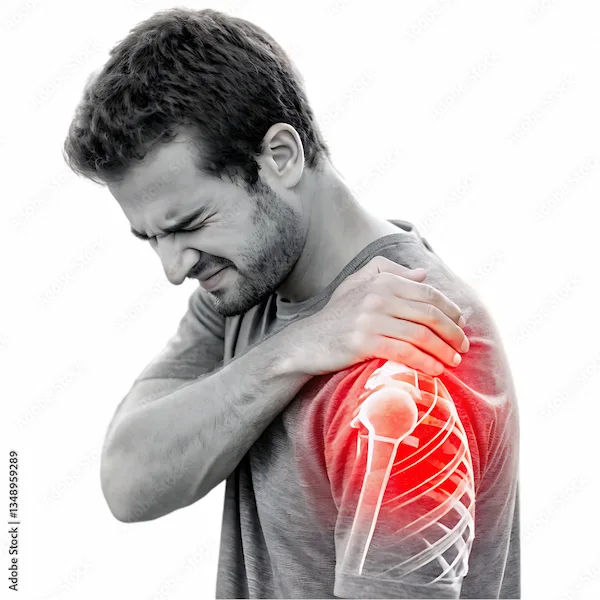Importance of First Aid: Why Everyone Should Be Prepared
Discover the importance of first aid, its fundamentals and techniques, benefits and how it empowers one to save lives and aid in recovery.

Written by Dr Sonia Bhatt
Last updated on 3rd Jul, 2025
First aid is the emergency initial care given to someone injured or ill before getting professional medical attention. It encompasses basic techniques and interventions that primarily focus on containing the condition and stabilising the patient. Measures such as controlling bleeding or doing cardiopulmonary resuscitation may help to save somebody’s life. Therefore, the importance of first aid cannot be overstated during health emergencies, as timely intervention can make the difference between life and death.
Basic Principles of First Aid
The basic principle of first follows ‘Three P’s’. They are:
Preserve Life: Take necessary steps as soon as possible not to let the injured person die.
Prevent Deterioration: Take measures to avoid further worsening the condition of the injured person.
Promote Recovery: Shorten the duration of recovery with effective and compassionate initial care.
Common First Aid Techniques
The essential first-aid techniques include the following –
CPR (Cardiopulmonary Resuscitation)
This is an emergency technique applied whenever individuals suffer from cardiac arrest and experience difficulty breathing.
The Heimlich Manoeuvre
It is used when individuals accidentally choke on something, food items or otherwise and struggle to breathe.
Bleeding Control
In bleeding control, one needs to press on the wound with a piece of clean cloth to help it stop bleeding. This method is mostly used when someone suffers a serious injury and starts losing blood.
Burn Treatment
Rinse the burn area under cool water for 10 to 20 minutes and apply a clean, sterile bandage. This will prevent blisters from popping up and aid in recovery.
Shock Management
Lay the individuals down, raise their legs, and keep them warm to maintain blood circulation and avoid shock.
Importance of First Aid Training
First aid training empowers individuals to respond effectively and compassionately, highlighting its vital role in saving lives and ensuring safety. Here is why it matters:
Saves Lives
Being able to do CPR, stop bleeding, or deal with choking can often be crucial to someone’s survival in a crisis situation.
Reduces Injury Severity
Early intervention prevents major complications and shortens the recovery period of severe injuries.
Boosts Confidence
Training educates people on how to act wisely in an emergency, thus reducing panic and stress.
Promotes Workplace Safety
Knowing first aid at workplaces offers an additional layer of safety. With individuals trained in providing first aid, offices can easily manage multiple health exigencies of their employees.
First Aid for Specific Situations
Some medical emergencies need specific first-aid responses. Here are some common situations and their appropriate first-aid steps:
Choking
To deal with choking -
Encourage coughing: Simply ask the choking patient to cough because coughing is good for removing the obstruction in the airway.
Abdominal Thrusts or Chest Compressions: Strike the abdomen or perform a compression on the chest to remove the obstruction.
Rub the back: Massage the back of the choked patient to help him/her clear the obstruction.
Continued Action: Carry on these measures until the obstruction is removed or an expert comes.
Shock
Shock is a severe state in which the organs of the body and tissues do not receive an adequate amount of blood. Here's what to do:
Call the emergency services immediately.
Lay the person down on his/her back and raise the legs to help with blood circulation.
Cover the individuals suffering from shock with blankets or clothing to keep them warm.
Monitor vital signs like heartbeat and oxygen levels and start CPR if required.
Encourage the person. This will reduce anxiety and not make the condition worse.
Poisons
The essential steps necessary to take to address chemical intoxication include:
Check Condition: Examine the patient and, if possible, ascertain the category or degree of the poison.
Moving Away: To protect the patient from further contamination, he/she should be moved away from the poison.
CPR: If the affected person is going into cardiac arrest, perform CPR.
Avoid Induced Vomiting: Do not attempt to make the patient vomit without receiving permission from a qualified physician.
Provide Information: Mention the patient’s age, weight, and approximate time of exposure to help in the treatment process.
First Aid Kits: Essentials and Maintenance
An adequate first aid kit is very important when giving initial assistance during an emergency. Here is what should be included and how to maintain your kit:
Essentials of a First Aid Kit:
Various sizes of adhesive bandages
Sterile gauze pads and bandages
Antiseptic wipes
Antibiotic ointment
Adhesive tape
Scissors
Tweezers
Pain Reliever
Thermometer
Disposable Gloves
CPR Face Shield
Burn Cream or Gel
Eye Wash or Eye Irrigation Solution
First Aid Manual
Instant Cold Packs
Thermal Blanket
Inhaler
Maintenance of a First Aid Kit:
Regularly Check Supplies: Make sure all the items are in the right condition, especially medicine and other sterile items.
Replace Expired Items: Some products, like medicines and antiseptic wipes, have a shelf life. Check the items regularly for their expiry and replace them when needed.
Keep Items Organised: Keep your first aid kit in a waterproof bag that is also easy to open and close. It is recommended to sort supplies by categories to save time during the emergencies.
Legal and Ethical Aspects of First Aid
Providing first aid has some legal and ethical aspects. Here is more on that –
Legal Aspects:
Good Samaritan Laws: Exempts people from legal consequences when they attempt to give first aid in emergencies.
Consent: It is essential to get consent from any patient who is conscious; implied consent should be given if the patient is unconscious.
Duty of Care: Some people, for example, caregivers, especially medical personnel, have legal requirements to provide first aid.
Confidentiality: Maintain the individual’s medical information confidential and only release it to the medical experts.
Ethical Aspects:
Do No Harm: Do not take steps that might make the person’s condition worse.
Respect and Dignity: Show the individual tenderness, courtesy and confidentiality.
Non-Discrimination: Assist irrespective of colour, gender, or any other attribute of the person.
First Aid in Schools and Workplaces
First aid is crucial for the safety and efficient management of emergencies in school setups and workplaces. The importance of first aid safety training programs includes –
Preparedness: It prepares the students and the staff to manage any health emergencies.
Confidence: It provides the necessary confidence to deal with the incident appropriately.
Prevention: It helps individuals to be proactive, and recognise and prevent the incident in the first place.
Compliance: It also satisfies legal requirements in organisations.
Protocols for Different Scenarios
Here are some protocols associated with first aid that everyone should remember –
Medical Emergencies: Clear steps for responding to an injury or an illness, including cardiopulmonary resuscitation.
Fire/Chemical Emergencies: Evacuation plans and safety procedures.
Physical Injuries: Protocols on how to manage a cut, fracture, and burn.
Mental Health: Methods for handling anxiety or trauma.
Psychological First Aid
Psychological First Aid is fundamental in emergencies because it intervenes and protects the emotional well-being of victims and assists in their recovery. Here is how first aid providers can support one’s mental health during emergencies –
Provide Reassurance: Encourage the patients not to be afraid with your calming words.
Create a Safe Environment: Make the person feel safe physically and emotionally.
Listen Actively: Do not interrupt them while they are expressing their emotions.
Encourage Normal Reactions: Counsel them to deal with their emotions to help curb cases of isolation.
Additionally, here are some techniques for providing comfort –
Empathy: Don’t just tell them to ‘calm down’ and instead show them you understand how they are feeling.
Practical Assistance: Understand what the person requires immediately, such as eating, drinking, and seeking shelter.
Distract and Redirect: Assist them to divert their attention onto something neutral or which could make him/her feel relaxed.
Conclusion
First aid is essential in responding to and managing health emergencies to save lives, reduce injuries, and promote recovery. Therefore, it is important to understand its basic principles and techniques for maintaining a well-equipped first aid kit and addressing legal and ethical considerations to provide the best initial care to the sufferer. Additionally, the knowledge of first aid and the necessary training fosters a culture of preparedness and awareness that ensures better outcomes during crises and helps to create a safer environment for everyone.
Consult Top General Physicians
Consult Top General Physicians

Dr. Debashis Nayak
Endocrinologist
8 Years • MBBS, DNB (Internal Medicine), PG Diploma ( Diabetes & Endocrinology )
Rourkela
Apollo Hospitals, Rourkela, Rourkela

Dr. Rajib Ghose
General Practitioner
25 Years • MBBS
East Midnapore
VIVEKANANDA SEBA SADAN, East Midnapore

Dr. Mohamed Azeem
General Physician/ Internal Medicine Specialist
2 Years • MBBS,MD(Internal Medicine) CCEBDM
Karaikudi
Apollo Hospitals Karaikudi, Karaikudi

Dr. Thirupathy K S
General Physician/ Internal Medicine Specialist
11 Years • MD
Karaikudi
Apollo Hospitals Karaikudi, Karaikudi
(75+ Patients)

Dr. Aakash Garg
Gastroenterology/gi Medicine Specialist
12 Years • MBBS, DNB (Medicine), DrNB (Gastroentrology).
Bilaspur
Apollo Hospitals Seepat Road, Bilaspur
(125+ Patients)

.webp)


